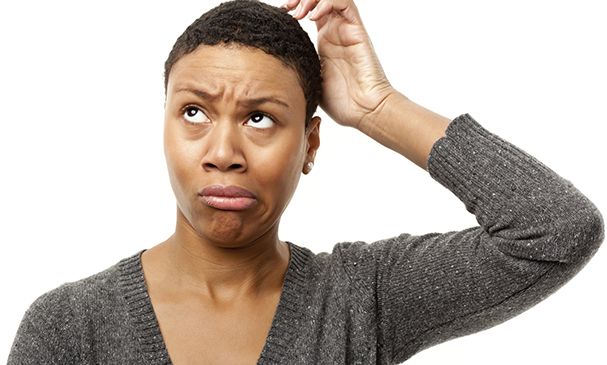Protein is a major component of healthy hair. For one, it is what hair is mostly comprised of. According to The Beauty Brains, adding protein does not make your hair healthy but rather the right kind of proteins used at the right levels can act as a conditioning agent and form a protective layer on the hair. So in a nutshell, the hair does not need protein per se but rather it needs something to form a protective layer on the hair. The Beauty Brains says that there are other ingredients that will do a great or even better job at protecting the strands like fatty quaternium compounds or silicones.
What exactly is protein sensitivity?
We hear about being protein sensitive all the time but what does that mean? According to the Toxicological Sciences in the Oxford Journals, the ability of some proteins to induce an allergic reaction has been well documented and symptoms can range from mild erythema to acute anaphylactic shock. Some proteins are intrinsically more allergenic than others, and often when we think of protein allergies we think of food allergies. What about protein allergies or sensitivity to hair or better yet the scalp?
I went back to school and asked Yolanda Anderson, M.Ed. (chemistry”> about protein sensitivity to hair and she said it could be possible but most likely on the scalp where an irritation such as bumps or patches may appear. Many often just think of what protein sensitivity means for your strands, but your scalp can suffer just as much if not more if it comes in contact with an ingredient it does not agree with. Our strands can also have sensitivity to protein and the clue would be in the reaction to it during or after the application.
Just like overuse of a protein can make your hair brittle or dry, the wrong protein or a protein your hair does not agree with can have the same outcome. The only problem is that since products have so many ingredients, how will you know what is causing the problem? It could very easily be a combination of protein with other ingredients that your hair has sensitivity to rather than the protein itself, but the only way to determine what exactly is causing the problem is trial and error.
How to determine if you have protein sensitivity?
Just try products! If you are using heat and chemicals, or manipulate your hair often, then you will need some type of protein treatment, in which the recommended potency or application frequency would depend on the needs of the individual. Experiencing dry, stiff, and brittle hair after using a product with protein or high amounts of protein is a good indicator that too much in present in your hair, which compromises the protein and moisture balance. Too much moisture creates limp hair that is too elastic. More times than not your sensitivity is actually just protein overload. It should not be a daily application, so check the ingredients label, as products with protein or high protein contents should be monitored. There are several types of proteins in hair products.
Read more: 6 Proteins that Must Be Hydrolyzed…If You Want Them to Work
Collagen protein will increase hair’s elasticity. Silk protein will strengthen and soften the hair. Vegetable protein can be easily absorbed into the hair shaft and attract moisture. Wheat protein is a moisturizing and strengthening protein. They all bring benefits to your tresses so read the ingredients label, be aware of what they do, and if they are in the top five ingredients then you know that specific product is formulated with a lot of them.
Read more: Top 20 Protein Rich Products
Reading the labels, keeping track of which ones your hair responds well or negatively to, and making sure you are not overloading your hair with proteins are the best way to determine if you are sensitive to them.
Are you protein sensitive? What are you favorite protein rich products?

